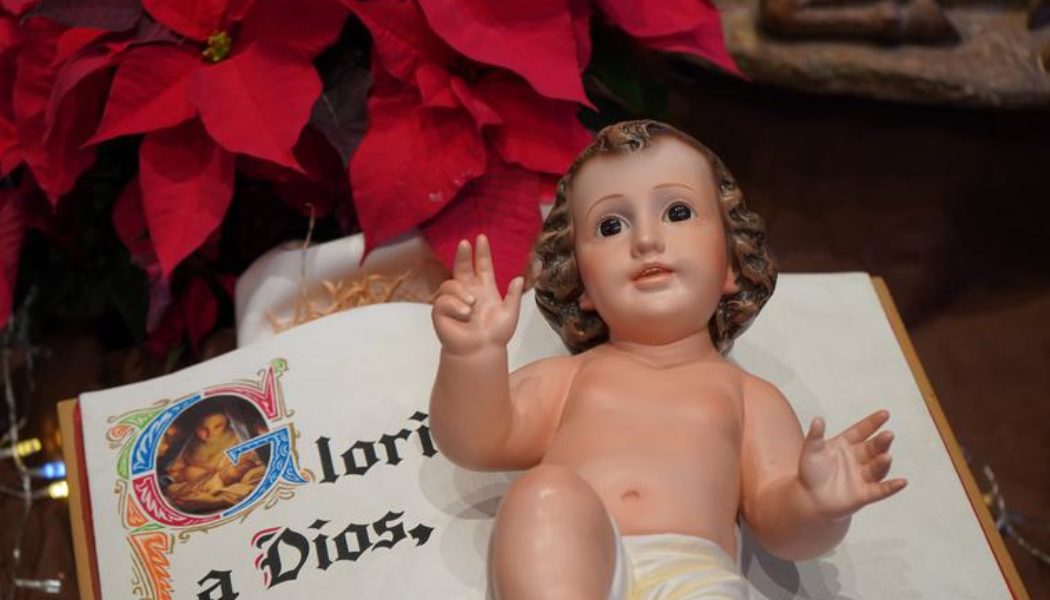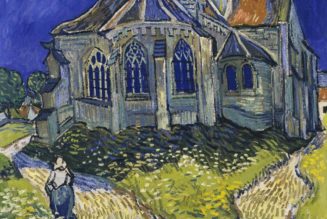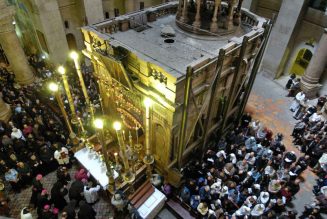
That Christmas involves a message of “joy” is anchored in the biblical story of the Nativity itself. The angel who appears to the shepherd in the field on the night of Jesus’ birth announces: “Do not be afraid; for behold, I bring to you good tidings of great joy, which shall be for all the people. For unto you is born this day in the city of David a savior who is Christ the Lord” (Luke 2:10-11).
The reason the shepherds are to have “joy” is because a “Savior” has been born. In other words, the joy of Christmas is bound up with the notion that God has come to save us. Christmas is not joyful, therefore, primarily because of the food we eat or because of the music we hear. Christmas is joyful first and foremost because we recognize that we need to be saved. Later, Luke’s Gospel shows us what this salvation involves. When the tax collector Zacchaeus repents, pledges to give alms to the poor and make restitution to those he defrauded, Jesus announces, “Today salvation has come to this house” (Luke 19:9). Jesus comes to save us from sin and from its effects. This is the ultimate gift of Christmas — the gift of a Savior. We can easily get distracted by other things. Yet this is primary.
I think we would also do well to note the way the message of Christmas is bound up with the notion of “peace.” After the angel declares this message of “good tidings of great joy,” we go on to hear how the angels sung: “Glory to God in the highest, and peace on earth to men with whom he is pleased” (Luke 2:14). Notice that peace is not simply announced to all: It comes to those “with whom he is pleased.” This raises a question: What does it mean to please God? Luke’s Gospel goes on to provide us with an answer. When Jesus is baptized, a voice from heaven declares: “You are my beloved Son, with you I am well pleased” (Luke 3:22). In Greek, we find the same term used in the story of the Nativity. Jesus shows us what it means to please the Father. To find peace at Christmas, we need to become like Jesus.
Of course, most of all, Christmas highlights the love of the Son, who humbles himself to become human (Philippians 2:8) to save us from sin. We will find joy and peace at Christmas, then, by learning to become like Christ, specifically, in learning how to humble ourselves and give ourselves away to others.
There are, then, two important ways we can prepare for Christmas. First, we should repent of our sins. If you are a Catholic, this is an especially good time of year to go to confession and receive the sacrament of penance. Second, we should learn to give ourselves away to others in love. We especially practice this through almsgiving. Indeed, the notion that Christians should celebrate Christmas through almsgiving goes back to the ancient Church.
Ancient Romans marked New Year’s Day on Jan. 1 — which, of course, would fall within what would become the “Christmas season” — with presents and partying. Christian preachers would warn their flocks against participating in such celebrations, which were characterized by drunkenness and pagan superstitions. For example, St. Augustine contrasts the pagans’ conduct on New Year’s with the self-discipline and charitable activities of Jesus’ followers:
“They give New Year’s presents: You give alms! They entertain themselves with debauched singing: Find your entertainment in the words of the Scriptures! They run to the theater [productions often involved immoral and salacious content]: You go to church! They get drunk: You practice fasting! If you cannot fast today, at least eat with moderation.” (Augustine, Sermon 198, quoted and slightly adapted from Thomas Comerford Lawler, trans., St. Augustine: Sermons for Christmas and Epiphany, 151).
Augustine goes on to compare Christian involvement with New Year’s celebrations, which were associated with the pagan god Janus, to “taking incense from their hearts and placing it before devils.”
Yet Augustine was not simply concerned with pagan idolatry. He explains that giving alms — that is, giving money to the poor — is qualitatively different from gift-giving. Many are happy to exchange gifts because they are ensured of being repaid. Almsgiving, however, seems like a waste of money:
“But you say to me, ‘When I give New Year’s presents, I receive them in return.’ What? When you give to a poor person, do you receive nothing in return? Surely, you do not believe what the Gentiles believe; surely, you do not hope what the Gentiles hope. … Have you already forgotten what the Lord is going to say to those who have given to the poor, ‘Come, ye blessed of my Father, take possession of the kingdom’ [Matthew 25:34]? And what he will say to those who have not given, ‘send them into everlasting fire’?” [Matthew 25:41] (Augustine, Sermon 198, quoted and slightly adapted from Lawler, St. Augustine,152).
By giving alms, one expresses one’s hope in the promises of Christ; by focusing on gift-giving, one simply looks to be repaid in this world — a hope guaranteed to disappoint.
Finally, there is one last detail about the Christmas story that I like to highlight. The angel announces: “And this shall be a sign to you: You shall find the baby wrapped in swaddling clothes and lying in a manger” (Luke 2:10-12). A manger is a feeding trough. Christ not only comes to us in humble circumstances, he comes to us as food. Much more could be said about this. I highlight this passage in my new book, The True Meaning of Christmas: The Birth of Jesus and the Origins of the Season and show how the Church Fathers saw this verse as having Eucharistic significance.
Indeed, Fathers like St. Jerome observe that it is noteworthy that Jesus is born in “Bethlehem,” which he explains literally means “House of Bread.”
The best way to celebrate Christmas is, therefore, to go to “Mass.” Indeed, this is the meaning of the solemnity — “Christ’s Mass.” Every Mass is a kind of “Christmas,” because with each celebration of the Eucharist we return to the Bread of Life. It is no wonder, then, that we sing the song the angels proclaimed at every Sunday liturgy: “Glory to God in the highest!” (Luke 2:14). So the best way to enter into the joy of Christmas is to enter into the Eucharistic celebration.
Join Our Telegram Group : Salvation & Prosperity








